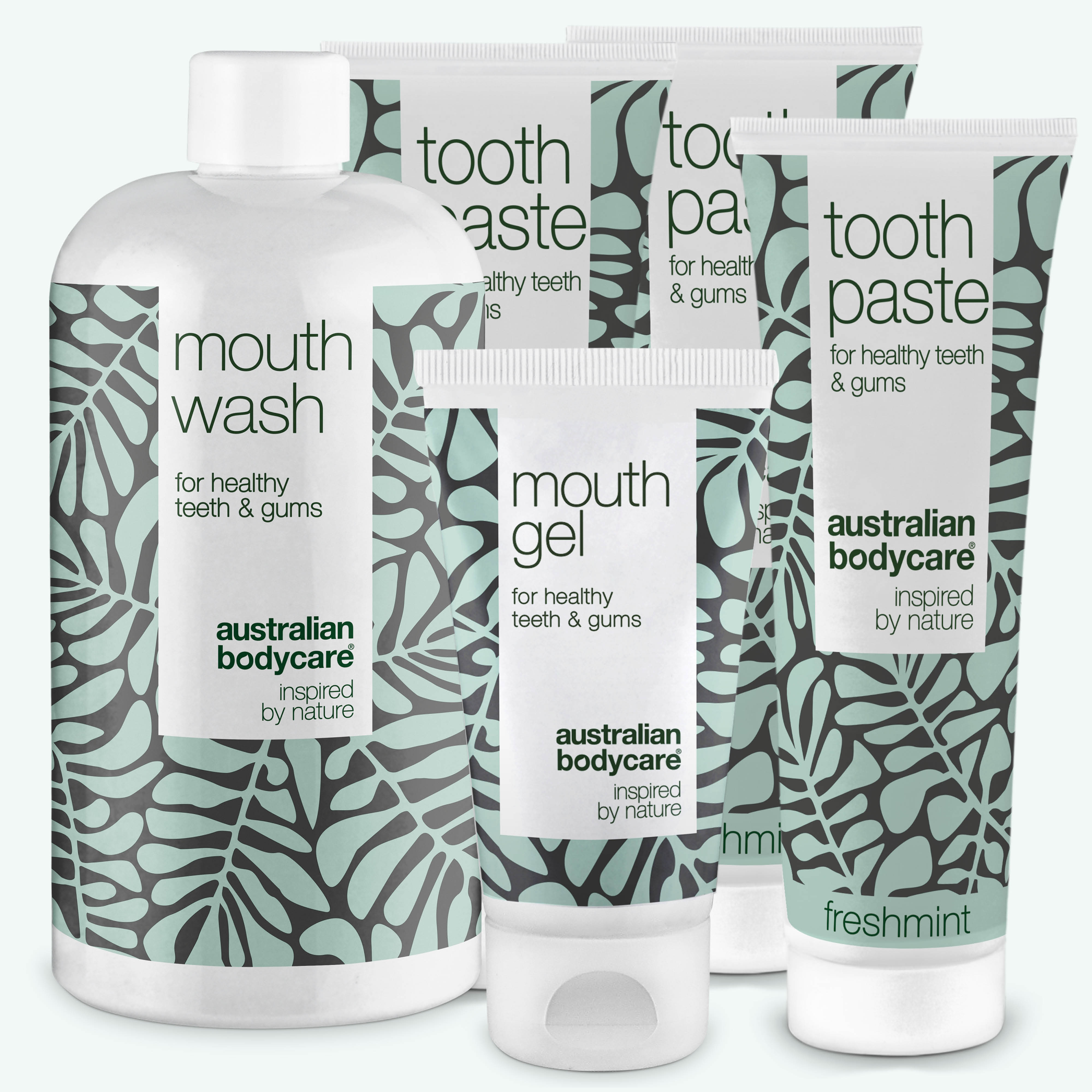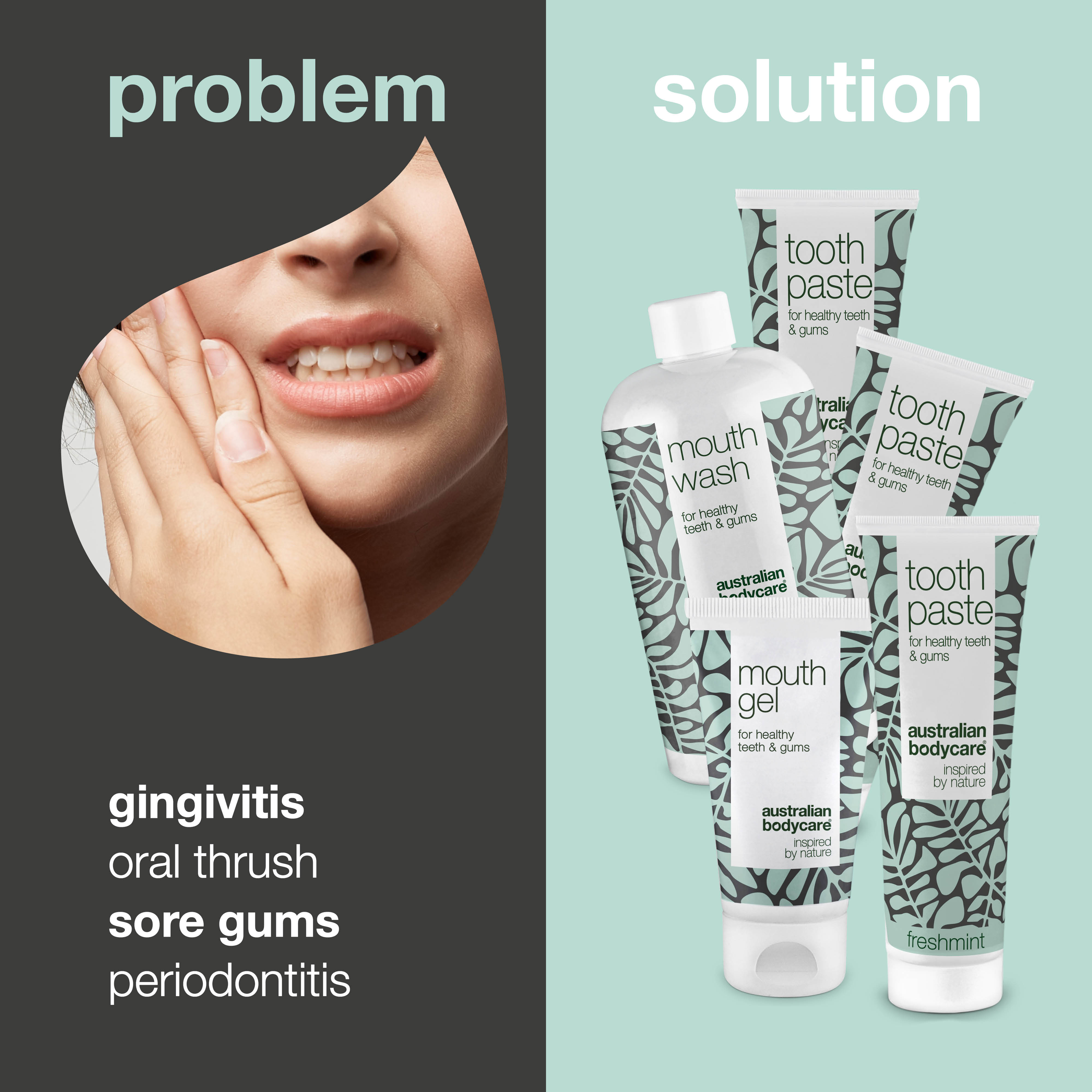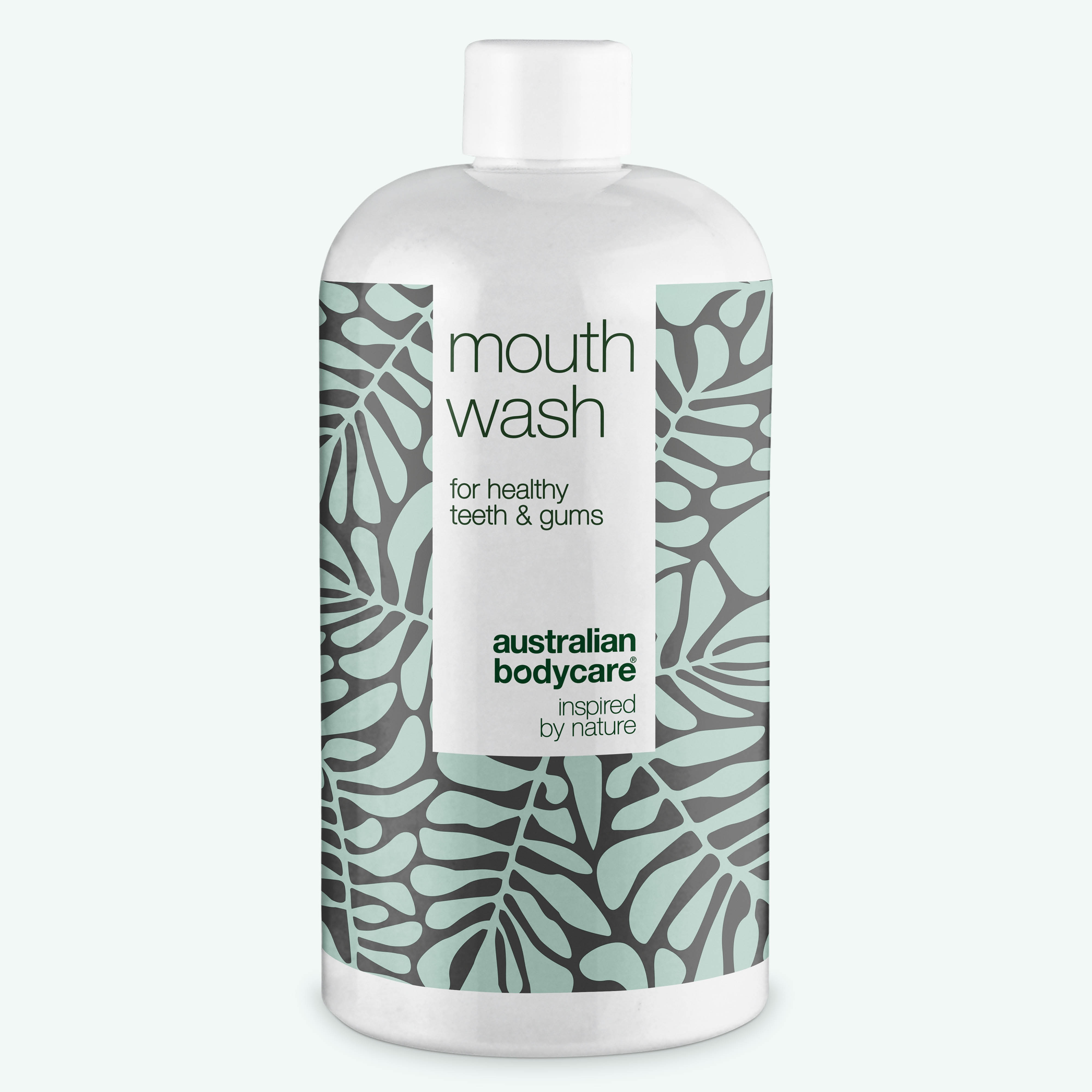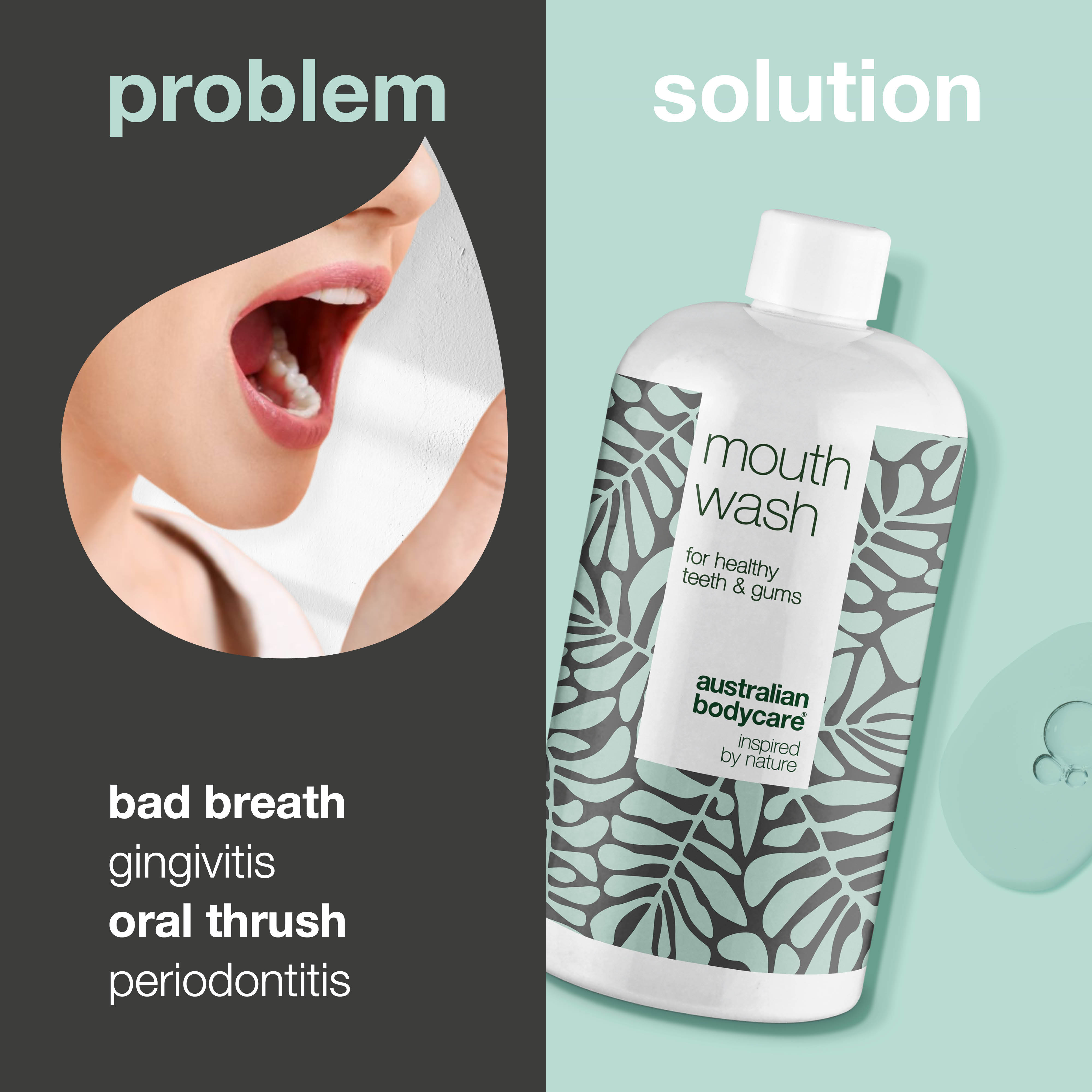Gum Pain? Causes and Tips to Get Pain-Free Quickly
Having gum pain is not only uncomfortable; it can also be a warning sign of dental problems such as gingivitis and other oral diseases. The pain can arise from many reasons, including poor oral hygiene, tartar, using a hard toothbrush, swollen gums due to cavities, or emerging wisdom teeth.
Table of contents
Why Do You Have Gum Pain?
Gum pain can be caused by several factors, including poor oral hygiene, infections, and inflammation. Gum diseases like periodontitis can also cause pain and swelling in the gums.
These conditions typically occur due to the buildup of bacteria along the gum line, leading to irritation and discomfort.
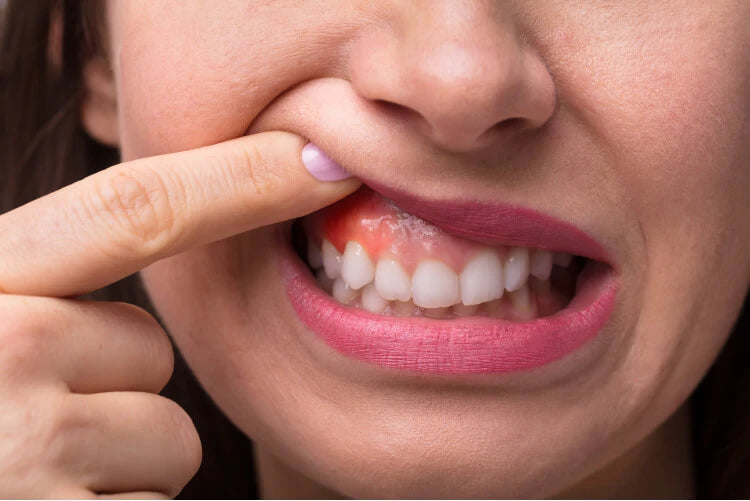
Causes and Symptoms
Gingivitis and periodontitis are common causes of gum pain. These problems often stem from poor oral hygiene, using a hard toothbrush, or tartar buildup.
Symptoms can include red, swollen, or bleeding gums. Many also experience pain while chewing or a constant bad taste in their mouth.
Smoking, pregnancy, and stress also contribute to gum problems. People may notice their gums receding or feel persistent soreness. It's important to take these symptoms seriously, as untreated gingivitis can lead to more serious conditions like periodontitis.
Make sure to regularly clean your mouth with floss and use a soft toothbrush to prevent these problems.
Common Causes and Prevention
Bacteria can cause gum inflammation, while gentle brushing and flossing can help prevent it. Read more for full information on prevention and effective methods.
Gentle Brushing and Flossing
Experiencing gum pain can be unpleasant, but it's often something you can prevent yourself. A key to this is gentle brushing and daily flossing.
1. Choose a soft toothbrush to protect your gums from unnecessary pressure. This helps remove plaque without damaging the gums.
2. Brush your teeth both in the morning and evening to ensure that bacterial buildup does not accumulate. This keeps your mouth healthy.
3. Use floss once a day to remove food and plaque between your teeth where your toothbrush cannot reach. This step is crucial to avoid gum issues.
4. Replace your toothbrush every three months or earlier if the bristles start to look worn. A fresh brush cleans your teeth more effectively.
5. Use gentle movements instead of hard strokes when brushing and flossing. This prevents irritation of your gums.
6. Take your time to thoroughly clean all surfaces of each tooth - front, back, and chewing surfaces.
7. After brushing, avoid rinsing your mouth thoroughly with water to remove loosened plaque and food particles.
8. If you experience gum pain after using a particular technique or tool, stop immediately and seek advice from a dental specialist on alternative methods.
9. Incorporate mouthwash into your routine twice a week for extra protection against bacteria that can lead to gum inflammation.
10. Understand the importance of these steps not just as means to prevent gum pain but also as investments in your overall oral health.
Following these tips diligently will help you maintain a healthy smile without the discomfort of sore gums and related conditions such as periodontitis or cavities.
Regular Dental Visits
Regular check-ups with the dentist help prevent gum pain and ensure that your teeth remain healthy.
1. Examination for early signs of problems: During the visit, the dental hygienist looks for signs of gum disease, cavities, and other oral diseases. This can help stop problems before they become serious.
2. Plaque and tartar removal: Professional cleaning removes bacterial buildup (plaque) and tartar that cannot be removed with regular brushing at home. This prevents gum inflammation.
3. Guidance on proper oral hygiene: The dentist or another clinical staff member provides tips on how to brush and floss correctly. They may also recommend specific products like chlorhexidine mouthwash if you tend to get inflammation.
4. Updating your personal oral hygiene plan: Depending on your dental health needs, the dental hygienist may adjust your treatment plan. For example, if you have symptoms of periodontitis, more specialized care may be necessary.
5. Replacement of old toothbrushes: Reminding you to replace your toothbrush every three months is important for effective cleaning and prevention of bacterial buildup.
6. Early detection and treatment of wisdom tooth problems: Sometimes, wisdom teeth cause complications such as pain or infection - regular visits keep your dentist monitoring their growth and suggesting intervention before it becomes a bigger problem.
Through these steps, you work with your dental hygienist to keep your smile both beautiful and healthy without gum pain or other unpleasant conditions.
Salt Water and Antibacterial Mouthwash
Saltwater and antibacterial mouthwash have proven effective in reducing gingivitis. It is a simple yet powerful way to combat gum infections and reduce pain.
1. Saltwater solution can help wash away bacteria and reduce gum inflammation.
2. Antibacterial properties can help kill harmful bacteria in the mouth and promote healing.
3. Mouthwash with these properties can relieve pain caused by inflammation and minor infections.
4. A saltwater solution can also help maintain a healthy pH balance in the mouth, reducing the risk of inflammation.
5. This type of mouthwash is easily accessible and economical, making it a practical solution for many people.
However, always consult a dentist if the pain persists or worsens, as more serious problems may require professional treatment.
Treatment and Relief of Gum Pain
To relieve gum pain, you can get professional treatment at the dentist who can help identify and treat the cause of the pain. Oral hygiene also plays an important role in alleviating discomfort, such as preventing cavities through gentle brushing and flossing.
Professional Treatment at the Dentist
The dentist performs professional treatment to relieve gum pain and treat any underlying causes. Through root canal treatment and other procedures, the dentist can identify and treat gingivitis and remove tartar, which can help prevent the development of periodontitis.
Regular visits to a dentist ensure thorough oral hygiene and counter possible problems with painful gums.
Oral Hygiene and Prevention of Cavities
Regular brushing and flossing are essential to prevent the development of cavities. A healthy oral hygiene routine can help prevent cavities and other dental problems.
Professional dental cleanings, regular dental visits, and antibacterial mouthwash are also important to keep the mouth healthy and prevent cavities. It is important to avoid sugary foods and drinks as they can contribute to cavities.
Maintaining a healthy diet and avoiding smoking are also essential to maintaining good oral hygiene and preventing cavities.
Conclusion and Importance of Treating Gum Pain
Treating gum pain is important to avoid more serious dental problems. By following good oral hygiene routines, including gentle brushing, flossing, and regular dental visits, you can reduce the risk of gingivitis and periodontitis.
If you experience gum soreness, you should immediately consult a dentist to get the right treatment and avoid potential complications. Taking action to treat gum pain will ensure you maintain healthy teeth and a healthy smile in the long term.
FAQ
Why do my gums hurt?
Gum pain can be caused by several reasons such as inflammation, swollen gums, emerging wisdom teeth, or oral diseases like thrush and dry socket. It can also be a sign of conditions like sinusitis, flu, and colds.
Can menopause affect my gums?
Yes, menopause can affect your gums. Hormonal changes in the body can lead to dry mouth and an increased risk of gum inflammation.
How can I treat gum pain at home?
To relieve pain quickly, you can rinse your mouth with salt water, use acetaminophen for fever or pain, and maintain good oral hygiene. Remember to stay hydrated and avoid foods and drinks that can further irritate your gums.
When should I see a dentist?
If you experience persistent pain, swelling, bleeding from the gums, or have a problematic wisdom tooth, you should contact your dental clinic. Likewise, if you suspect a cavity or other serious symptoms.
How can I prevent gum pain in the future?
To prevent gum pain, you should brush your teeth regularly with fluoride toothpaste, floss daily, avoid tobacco and alcohol, and visit your dentist regularly for check-ups and cleanings. A healthy diet rich in vitamins also supports a strong immune system and healthy gums.


